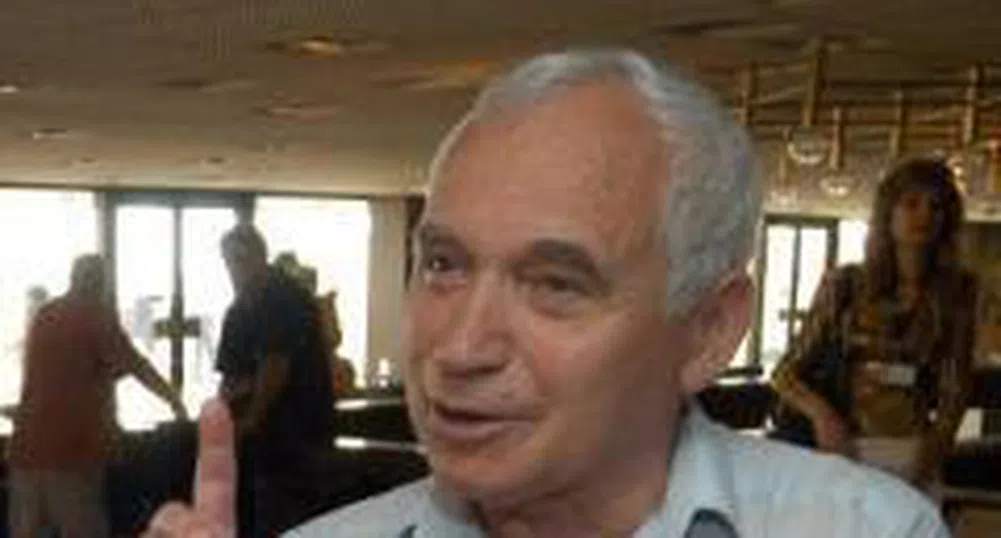Former President Zhelev Supports Presidential Republic

Zhelyu Zhelev, the first democratically elected president of Bulgaria, spoke publicly in favour of establishing a European-style presidential republic.
"This is a necessary step we failed to take during the transition period, and to me, it is one of the main reasons for the failure of our transition, especially in its economic aspect," Zhelev said in a bTV interview on Friday. In his view, the problem is that in Bulgaria, being a parliamentary republic, responsibility is diluted. In fact, collective irresponsibility hides behind the notion of collective responsibility, which appealed very much to politicians, especially MPs, he said.
Zhelev disagreed with claims that the incumbent President, Georgi Purvanov, is responsible for the formation of the three-party coalition made up of the Coalition for Bulgaria, the National Movement for Surge and Stability and the Movement for Rights and Freedoms, which ran the country until recently. Zhelev argued that in 2005 the formation of a cabinet was a prerequisite for Bulgaria's entry into the EU, and besides, the president does not have the constitutional powers to oppose the formation of a cabinet.
Zhelev quoted sociological surveys of the last few years, which show that 2 per cent of all politicians supported a presidential republic, as against nearly half of voters in favour of this form of government. "We see a wide gap between politicians and voters at that time," the former President said.
According to Zhelev, this is the right time to change the form of state government. That usually happens at a critical, very dramatic time for a country and a State. Zhelev recalled that the French General Charles de Gaulle created the European type of presidential republic, known as a semi-presidential republic, when France was going through a very critical period. Zhelev explained the difference between the European-style presidential republic and its American counterpart, where the president is both head of state and head of government.
According to Zhelev, the transition to a presidential republic implies primarily expanding the president's control over the executive. Zhelev pointed out that in a European-style presidential republic, the president appoints the prime minister, and other key members of the cabinet cannot be appointed without the president's consent. Regarding Bulgaria, the key members of the cabinet are the ministers of foreign affairs, the interior and defence. In that way, the president and the executive can cooperate, and the head of state can control the government's activities in some areas and at the same time bear responsibility for the country's governance.
Zhelev recommended that the transition should start with a public awareness campaign explaining the notion of a European-style presidential republic since many voters easily buy the allegation that a presidential republic is the same as a dictatorship. The president will also be controlled and dismissed by Parliament in case of committing high treason or violating the Constitution and the key laws.
Asked if he sees Boyko Borissov as the first president of a Bulgarian presidential republic, Zhelev said he had never stated that Borissov should be the first president, but he could easily take the post since he has the will, stamina and tenacity to follow a strict course.
President Georgi Purvanov told reporters in Veliko Turnovo that he would take part in a debate on convoking a Grand National Assembly, although it would be a waste of political and administrative resources amid the economic crisis. Commenting on Zhelev's idea of establishing Bulgaria as a presidential republic, Purvanov said he was in favour of the parliamentary republic.
The President said he had already announced the changes in the presidential powers he considers necessary: the president should have the right to directly call a referendum, the percentage of MP votes needed to override a presidential veto should increase, and the president should have the right to initiate legislation. Purvanov argued that the constitutional framework laid down at the start of the transition period should not be overstepped since it functions properly and Bulgaria has a European-style Constitution.
Source: BTA
)
&format=webp)
&format=webp)
&format=webp)
&format=webp)
&format=webp)
&format=webp)
&format=webp)
&format=webp)